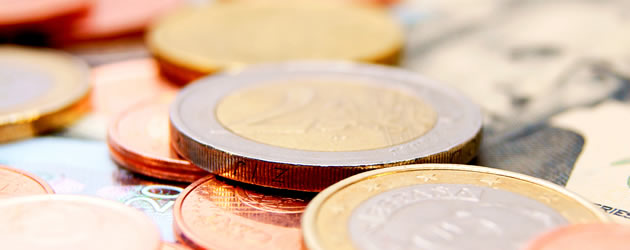The Euro to South African Rand (EUR/ZAR) exchange rate advanced by over 1% on Thursday morning.
After Greece managed to repay €200 million to the International Monetary Fund (IMF) on time, the common currency strengthened versus many of its major peers. Thursday’s mixed results from European economic data wasn’t enough to quell gains.
With Eskom continuing to resort to rolling power cuts, and with Medupi works entering the sixth week of strikes, the South African Rand softened versus the majority of its most traded currency rivals. A complete absence of domestic data should see the Rand continue trending bearishly.
The Euro to South African Rand (EUR/ZAR) exchange rate is currently trending in the region of 13.7830.
Euro (EUR) Exchange Rate Forecast to Trend Higher despite Cooling German Retail Sales
As mentioned above, after Greece repayed the IMF €200 million on time the shared currency strengthened considerably. Most analysts did not expect the cash-strapped nation to make the payment. However, with another very large sum due to the IMF on May 12th, speculation is mounting that Athens will have no chance of making the payment without bailout funds from Eurozone creditors.
Thursday’s domestic data produced mixed results, but it wasn’t enough to offset Euro gains. German Factory Orders equalled the market consensus of 1.9% growth on the year. The German Construction PMI declined from 53.3 to 51.0, however. The Eurozone Retail PMI advanced from 48.6 to 49.5, but German Retail PMI cooled from 53 to 52.6.
Commenting on the Eurozone Retail PMI, Markit economist Phil Smith stated; ‘The headline Eurozone Retail PMI rose for the second straight month in April, lifted primarily by a marked easing of the rate of decline in sales in Italy. Still, it was Germany where the figures looked the healthiest overall, with sales there up for the seventh straight month. The survey pointed to growing cost pressures at retailers, however, as wholesale price inflation reached a 13-month high. Gross margins continued to fall markedly and at a faster rate than in March, signalling conditions remain demanding for retailers.’
The Euro to South African Rand (EUR/ZAR) exchange rate dropped to a low of 13.5691 today.
South African Rand (ZAR) Exchange Rate Forecast to Cool as Eskom Load Shedding and Strikes Weigh on Economic Progress
Although a soft US Dollar would ordinarily be good for the Rand as an emerging-market currency, the South African economy has taken a significant hit from ongoing troubles with their most prominent energy provider. Eskom have been forced to load shed with rolling blackouts in order to safeguard tired machinery.
In addition to load shedding, the company have faced strikes from workers at the Medupi power station. Eskom boss Brian Molefe stated; ‘The strike at Medupi is really an unprotected strike. The contractors, for whom the employees gathered at the strike work for, have obtained a court interdict to stop them from striking.’
‘In the past, Eskom has entered into agreements, agreements that were manned to facilitate the situation so that there are no strikes going forward,’ he added. ‘The employees that work for your contractors that’s building your house is the employees of the contractors and so the matter must be resolved between the employees and the employers.’
Euro to South African Rand (EUR/ZAR) Exchange Rate Forecast to Hold Advance
Given the absence of domestic data to provoke changes, and with Eskom power cuts expected to continue, the Euro to South African Rand (EUR/ZAR) exchange rate is likely to hold gains for the remainder of Thursday’s European session.
Friday ought to see heightened EUR/ZAR volatility with German Industrial Production and Trade Balance data due for publication, and with South African Foreign Exchange Reserves also due for release.
The Euro to South African Rand (EUR/ZAR) exchange rate climbed to a high of 13.7958 today.



